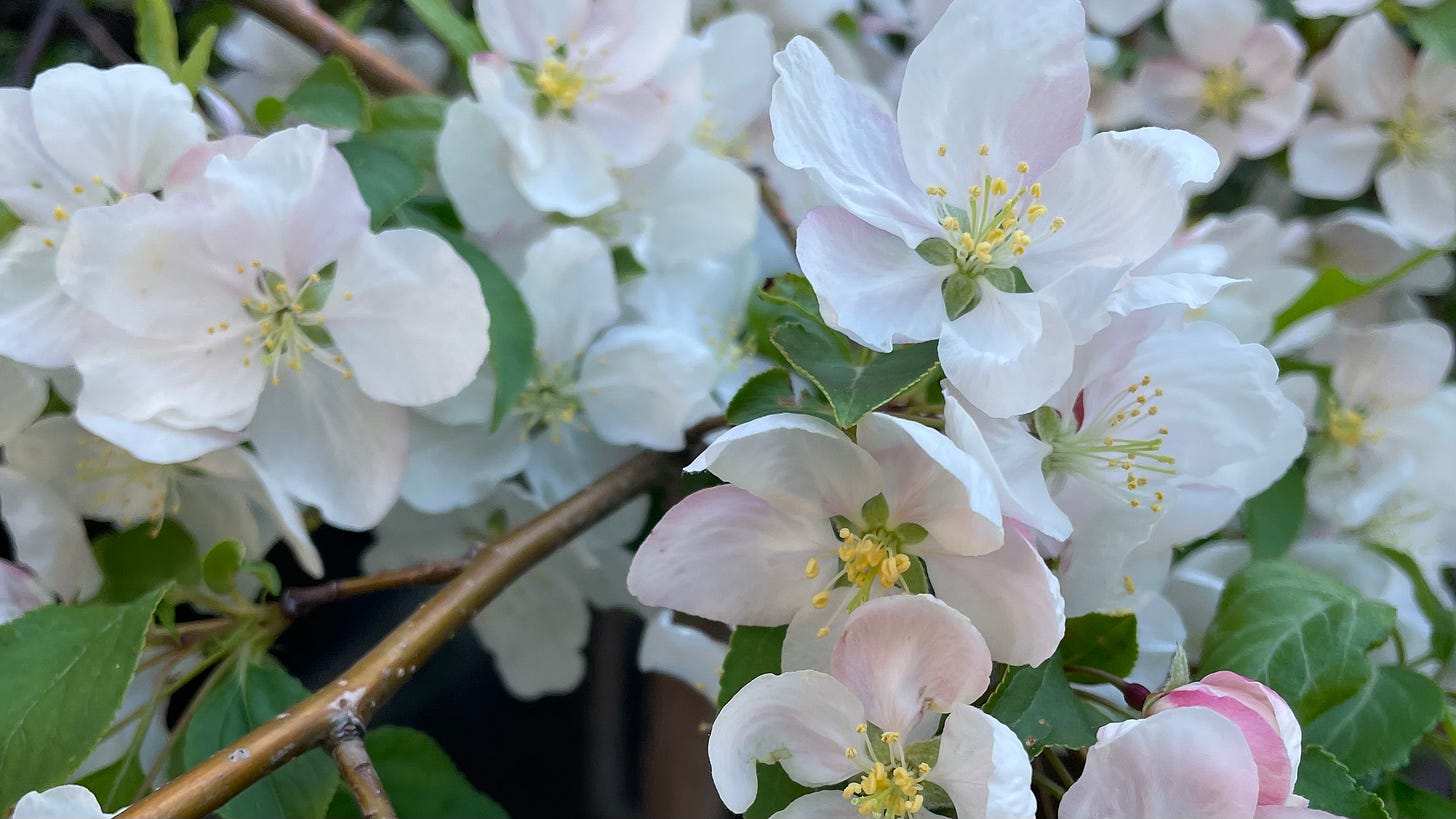Do Japanese People Ever Say “I Love You”?
In a culture where love is rarely spoken, I’m learning to be the one who says it anyway
In Japan, it’s not unusual to go a lifetime without hearing “I love you”1—not from your parents, grandparents, or even your partner.
My grandfather never said “I love you.”
Not to me. Not to my grandmother—not once in front of me, and perhaps not even in private.
But I never doubted his love.
It was in the way he’d pat my back and say “Ganbareyo” (がんばれよ, “Do your best”)—his version of “I’m proud of you.”
It was in the way their walls were covered with photos of me, my sister, and my brother—taken with his old film camera, each one framed with care.
In our home, love was shown through quiet actions, care, and unspoken gestures.
A storyteller who left one story untold
But still, words leave a mark. And so does silence.
My grandfather was a classic Japanese father—stoic, hardworking, reserved.
But beneath that, he was a storyteller.
He shared memories from his childhood—growing up during the war, finding his way in postwar Japan. And one story I remember most is how he met my grandmother.
They married through an arranged marriage, meeting for the first time at their omiai (お見合い), a formal matchmaking meeting.
No dating. No love letters.
Just a quiet agreement between families.
And yet, their bond lasted decades.
He’d talk about his school days—lining up for rations, playing baseball with a homemade glove.
His stories were so vivid, they transported me to a Japan I never knew.
He’s the reason I became a storyteller.
But even for him, there was one thing he never put into words: how much he loved my grandmother.
When silence turns into regret
When we lost her suddenly last year, I saw something shift in him.
He looked smaller. Quieter.
Carrying something unspoken.
After the funeral, the house felt different.
He did too.
A few months later, we found out he had cancer.
The doctors said he might not make it to his next birthday, May 22.
As I spent his final days by his side, I saw a softer, more vulnerable version of the man I thought I knew.
One afternoon, I noticed him quietly reading something: old letters I had written to my grandmother as a child.
Letters where I said, “I love you, Grandma.”
He read them slowly, again and again, with a look I couldn’t quite describe.
Maybe pride. Maybe regret.
That image still stays with me.
I don’t know what went through his mind, looking at those three words—printed in a child’s handwriting, never his own.
But I’ve come to realize:
Love doesn’t always need to be loud. But it does need to be heard.
The words we hold back
In Japan, love doesn’t always speak. It cooks dinner, warms the bath, and waits by the door until you’re home safe.
It rarely says the words.
Unspoken love is still love—
but we often assume it speaks for itself.
So I say it now.
To the people I love.
Not perfectly, but honestly.
Even in a culture that values quiet love.
Because when love stays quiet, regret can get loud.
Better a clumsy “I love you” than a lifetime of wondering.
A quiet reminder for the rest of us
When my grandmother passed, I remember thinking: I wish I had appreciated them more.
I thought I had more time.
I thought, I’ll visit next week. I didn’t.
So when my grandfather became sick, I promised myself I wouldn’t make that mistake again.
Not everyone gets to see their loved ones often—for all kinds of reasons.
But if you can, give them your full attention.
Not your phone. Not your to-do list.
My grandfather never learned how to use a smartphone—no matter how many times I tried.
And honestly, I appreciated that.
Because when we were together, we were really together.
These days, we feel “connected” 24/7.
But connection isn’t the same as presence.
It’s not the same as sitting together in silence, hearing an old story again, or sharing a cup of tea without multitasking.
And yet, it’s often the simplest words—like “Thank you” or “I love you”—that we hold back the longest.
But the moment will pass.
And when it does, you’ll want to know you were really there.
So let me leave you with a question:
What’s one small way you’ll be present with someone you love—even across distance, time, or culture?
P.S.
May is Mental Health Awareness Month.
Grief, love, regret, connection—these are all part of our emotional health.
If this story reminded you of someone, take a moment to reach out.
Even a simple “thinking of you” or “I’m glad you’re in my life” can mean more than you think.
Every spring, he took photos of cherry blossoms with his old film camera.
It’s in those small details—like how he saw the world through his lens—that I still feel close to him.
Some stories stay with you forever. Thank you, Grandpa, for being mine.
Japanese does have ways to say “I love you”—like aishiteru (愛してる) or the more commonly used daisuki (大好き), which roughly means “I really like you” or “I’m fond of you.”
But these words aren’t used the same way as “I love you” in English.
In everyday conversation, “aishiteru” often feels too heavy or theatrical, especially among older generations. Even daisuki is often saved for special moments—not something you’d say to your parents every day.
Instead, love is often expressed through tone, everyday gestures, and being there when it matters—not through words. Many feel you don’t have to say “I love you” when you’re already showing it.








I think it might be an Asian thing... Don't recall hearing my parents saying "I love you." to one another nor to us. But we really should say it more often. I try to say it at least once a day to my wife. Think it's as much for her as it is for me.
Thank you for sharing this beautiful reading and loving reminder with us. I grew up in between traditional Japanese and integrating into American culture as a child, and envied how my friend’s family dynamics and how they express their love for one another. Inspired, I went home that same day and said “I love you, Okasan”- and she didn’t answer back. Instead, she wanted to know if I did my homework. I didn’t understand it then, but I do see now that rather than saying it, my family shows their love through actions. I try to learn from both cultures and do both. I can’t change my family, but it’s my choice to say I love them, and show up in loving ways. That’s more than enough